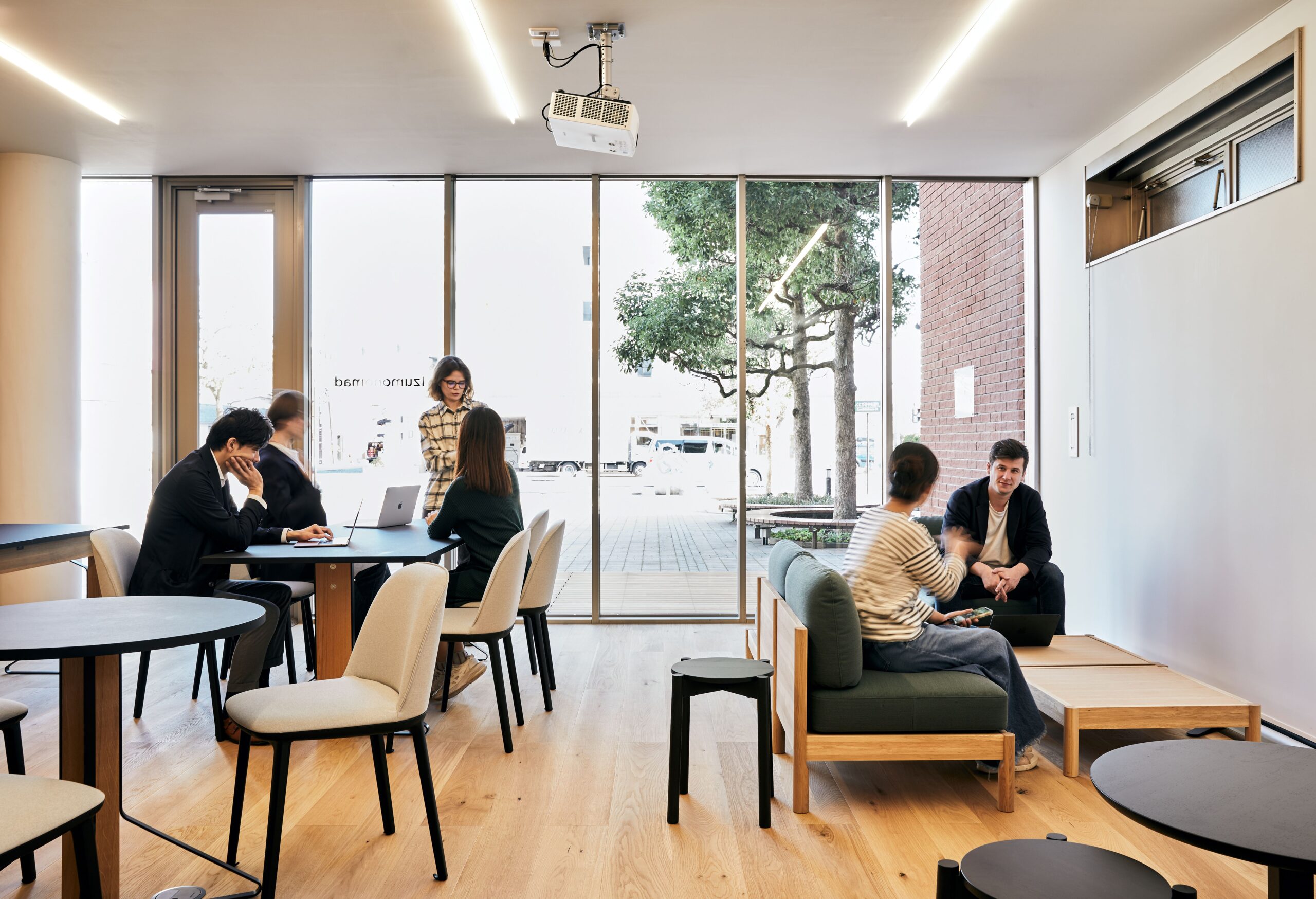Izumo, a city in eastern Shimane Prefecture renowned for its mythology and the historic Izumo Taisha Shrine, is emerging as a hub of innovation and multiculturalism—an evolution that builds on the city’s history of welcoming diverse communities. Once celebrated mainly for tradition and spirituality, Izumo is now showing that even Japan’s most storied cities can adapt to a changing world.
Izumo has long been a city where the integration of non-native communities—such as the 3,200 Brazilians who settled here decades ago—has been a notable feature. Many initially came as factory workers and have since become essential members of the community. Now, Izumo is undergoing another quiet transformation: the arrival of SAMI Japan, a multinational tech company comprising Japanese, Ukrainian, and Russian IT professionals.
Founded in Saint Petersburg, Russia, in 2017 by Hiroshi Makino and his Russian colleagues, SAMI Japan started as a Russian company named SAMI. It quickly gained recognition for connecting Japanese businesses with top-tier IT talent from Russia and Eastern Europe. These regions are celebrated not only for their strong academic traditions, but also for significantly shaping the global tech scene. Notable figures from these areas include Google co-founder Sergey Brin and PayPal co-founder Max Levchin. As Japan continues to face a severe shortage of tech talent, this cross-border expertise has become more crucial than ever.
However, this progress came to a halt in 2022 when Russia’s invasion of Ukraine triggered sweeping sanctions and capital restrictions. A presidential directive by Vladimir Putin banning fund transfers to Japan forced SAMI to shut down its operations in Russia. Within just five years, SAMI had to navigate a geopolitical crisis that would change its future entirely.
Amidst this crisis, Makino received crucial support from Hiroki Inagawa, chairman and CEO of Monstarlab Group—and a native of Izumo. Thanks to Inagawa’s assistance, Makino and his colleagues, including both Ukrainians and Russians, relocated to Japan and restarted their operations in Izumo as SAMI Japan.
The company’s relocation is more than just a business development—it represents a broader shift in Izumo, demonstrating that even one of Japan’s most culturally traditional cities is embracing global talent and innovation.
The IT company in Izumo now works to introduce Eastern European IT engineers to Japanese companies, including those in Izumo. Amid an ongoing brain drain caused by the war, it is estimated that around 300,000 Eastern European engineers are seeking opportunities abroad, and some are interested in coming to Izumo to receive training— including Japanese lessons—so they can adapt to life and work in Japan.

(Photo courtesy of People Cloud)
Given the situation, SAMI Japan has launched its employment platform, called People Cloud, designed to connect Eastern European engineers with Japanese companies and to support foreign entrepreneurs in Izumo through partnerships with local organisations, such as the Chamber of Commerce. Additionally, the company hosts regular hackathons to address regional challenges across Japan in cities such as Izumo, Matsue, Fukuoka, and Tokyo, earning praise for its practical problem-solving approach.

(Photo courtesy of People Cloud)
In addition, although it has now ended, the company also ran a non-profit programme called Dopomoga.jp to support Ukrainians fleeing their country and seeking employment in Japan. Dopomoga is a Ukrainian word meaning ‘support’.
In a sign of growing local engagement, the Tokyo University of Foreign Studies is preparing to open a satellite campus within Izumonomad, a co-working space located on the ground floor of Palmate Izumo, just in front of JR Izumo-shi Station. Operated by People Cloud, the facility includes shared workspaces, rental offices, meeting rooms, and event spaces—serving as a base for fostering collaboration between local and international professionals.

(Photo courtesy of People Cloud)
The academic initiative aims to conduct field research into models of multicultural integration, positioning Izumo as a living laboratory for Japan’s evolving approach to social inclusion.
‘I’m glad I moved to Izumo. The locals are kind, the nature is beautiful, and the cost of living is much lower than in Tokyo, says Afanasev Boris, a project manager at People Cloud.
For the people of SAMI Japan, Izumo is more than just a workplace—it is where they have found purpose, belonging, and the freedom to create something new together.
It is a shared journey that began quietly, in the heart of Shimane, but is already gathering momentum—subtle at first, yet with the power to ripple far beyond Japan’s shores.
(Words by Takashi Saito. Featured image courtesy of People Cloud)
How to Get to Izumonomad
✈️ From Haneda Airport
[1] By plane and bus (easiest and most convenient)
-
Haneda Airport → Izumo Enmusubi Airport
(Approx. 1 hour 30 minutes by FDA or JAL) -
Izumo Enmusubi Airport → Izumo-shi Station
Take the airport limousine bus bound for Izumo-shi Station (Approx. 30 minutes / ¥720 one way) -
Get off at Izumo-shi Station Bus Terminal → Walk 1 minute to Palmate Izumo (Izumonomad)
Total journey time: Approx. 2.5 to 3 hours (including waiting times)
Fewer transfers and smooth connections from the airport to the city centre.
🚅 From Tokyo Station (by train)
[2] By Shinkansen and Limited Express (with transfers)
-
Tokyo Station → Okayama Station
(Approx. 3 hours 15 minutes by Nozomi Shinkansen) -
Okayama Station → Izumo-shi Station
(Approx. 3 hours by Limited Express Yakumo) -
From Izumo-shi Station, it’s a 1-minute walk to Palmate Izumo (Izumonomad)
Total journey time: Approx. 6.5 to 7 hours
Though it takes longer, it offers scenic views and is a good option for those who prefer not to fly.

